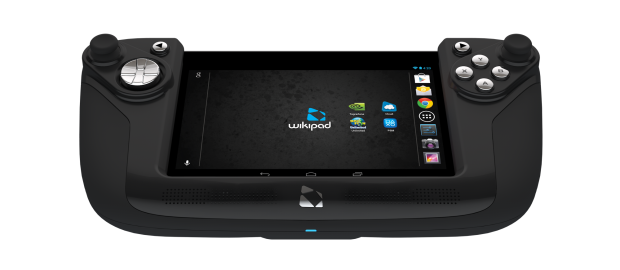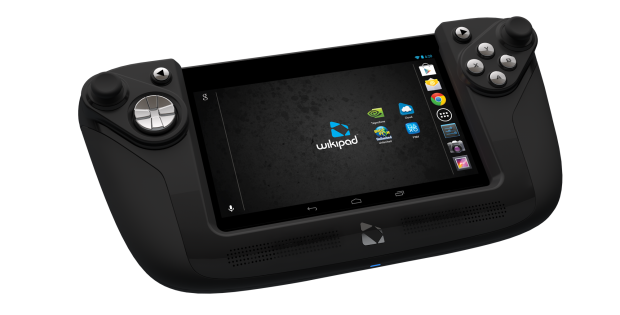WikiPad Review
When you want to play games on the go, what do you do? You may fall in the camp that religiously holds onto their dedicated gaming devices, from the Nintendo 3DS to the PlayStation Vita. Buttons are, of course, far better than virtual touchscreen controls, right? Or do you prefer the modern convenience of the tablet? Sleek devices that offer internet and productivity options along with your gaming needs.
The Wikipad attempts to serve the needs of both, offering an NVidia Tegra 3-powered tablet, running Android 4.2 (Jelly Bean), all with a hand-friendly 7” display. But Wikipad, who’s your cheeky-looking friend? Why, it’s your unique selling point, a bolt-on adapter that gives you a fully-featured modern gamepad in which to play proper games with. Surely with this added contraption, you offer the best of both worlds?
Alas, that is not entirely the case, but that’s not to say the Wikipad isn’t without some very good features. For a start, Wikipad are promoting their device in a partnership with the streaming service OnLive, as a means of playing PC games on a device far smaller.
However, due to OnLive’s bandwidth-hungry requirements, not all games are entirely suitable to be played in this way. On a PC/Mac with a wired Ethernet connection to a decent broadband line, OnLive is pretty damn impressive, but connect to the service via a wifi connection (even a zippy 5GHz one), and the results are far from satisfactory, with only the most slow-paced of games being really playable, due to the unavoidable lag in controls. I also had a horrible time trying to get OnLive to detect the GamePad, and an even worse time trying to enable OnLive’s new Cloudlift service, which allows you to link your Steam account and play selected games from your Steam games list. I had to disable SteamGuard before I could link my account, as OnLive just wouldn’t let me get past the SteamGuard Verification process.
So that really leaves you with games available on the Android device itself, such as those from the Google Play store, alongside games made available on the PlayStation Mobile service, the support for which has just been withdrawn by Sony. Graphical performance is decent for the games I tested the WikiPad with, and the three pre-installed games on the tablet (Dead Trigger, Shadowgun: Deadzone, and Hockey Nations) work well with the WikiPad’s GamePad, even if it can take a lot of tweaking to get the sensitivity and button configurations right. It still doesn’t feel quite right though, especially as the GamePad itself doesn’t feel particularly great during use. The analog sticks feel very loose and the buttons are far too clicky, making for a very cheap feeling controller.

Then there’s the tablet itself, which is decent to look at, although the touchscreen has a very coarse feel to it when swiping, which feels like you’re sliding your finger over some dried Pritt Stick – it’s that sticky. This makes using the tablet rather unwieldy for its intended purpose.
Put the tablet together with the GamePad addon, and it is a very light piece of hardware, far lighter than it actually looks, but the ergonomics leave a lot to be desired, as holding the GamePad slanted my hands and wrists outwards, making it actually quite uncomfortable to play. It doesn’t feel anywhere near as nice to hold as something like the Wii U GamePad, for example. Battery life is about average for any other tablet out there, depending on how you use it, so you will be charging this every day. It’s worth noting, however, that you can charge the device via USB.

VERDICT: The Wikipad is certainly one of those “Jack of All Trades…” devices, but it’s limited by so many factors, including the viability of the Android platform itself as a platform for console-quality gaming. As I write this, Wikipad and Ouya have just announced a partnership to bring Ouya to this device, and it’s partnerships like this that have the potential to make the Wikipad a worthwhile device. Onlive support works well, but is no replacement for using the service on a real computer or OnLive console.
As it currently stands, we have a good idea that works in principle, but the execution just isn’t on par with either a dedicated gaming system or tablet device.





